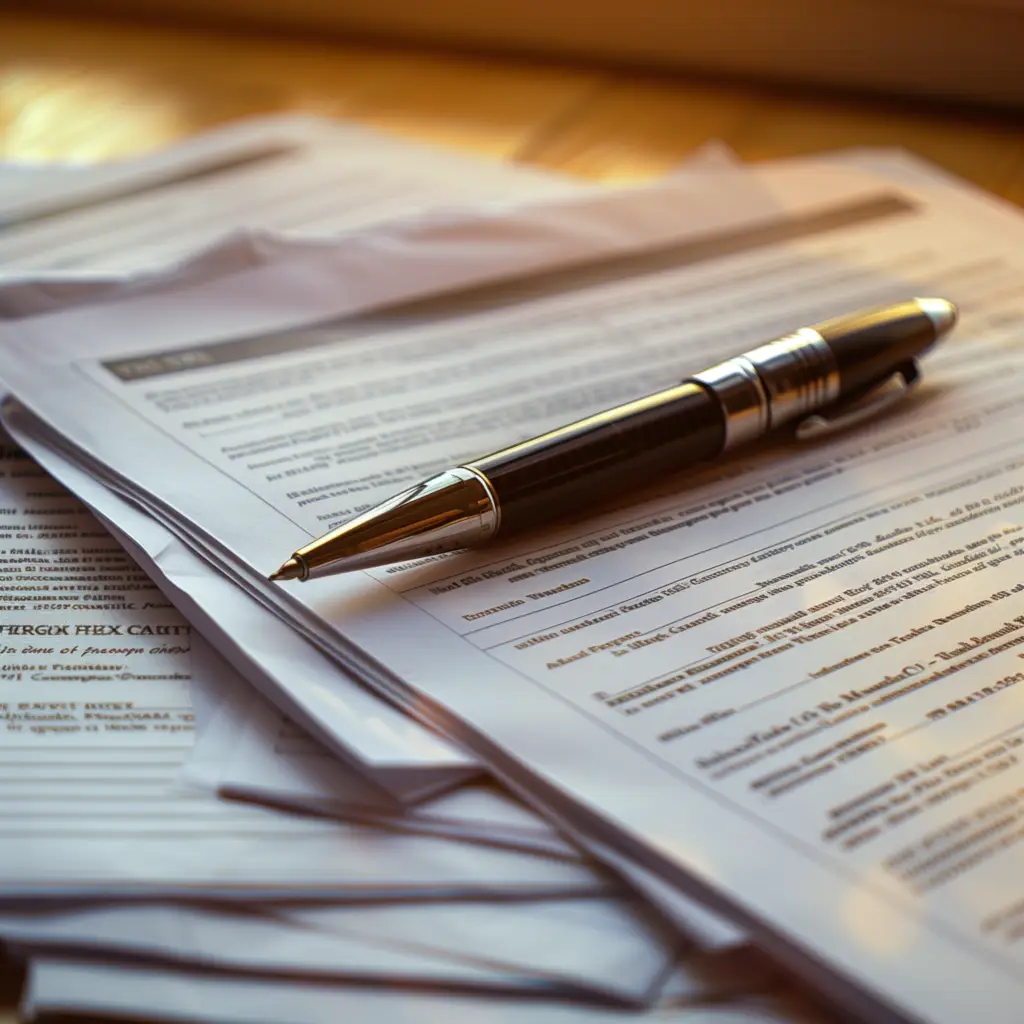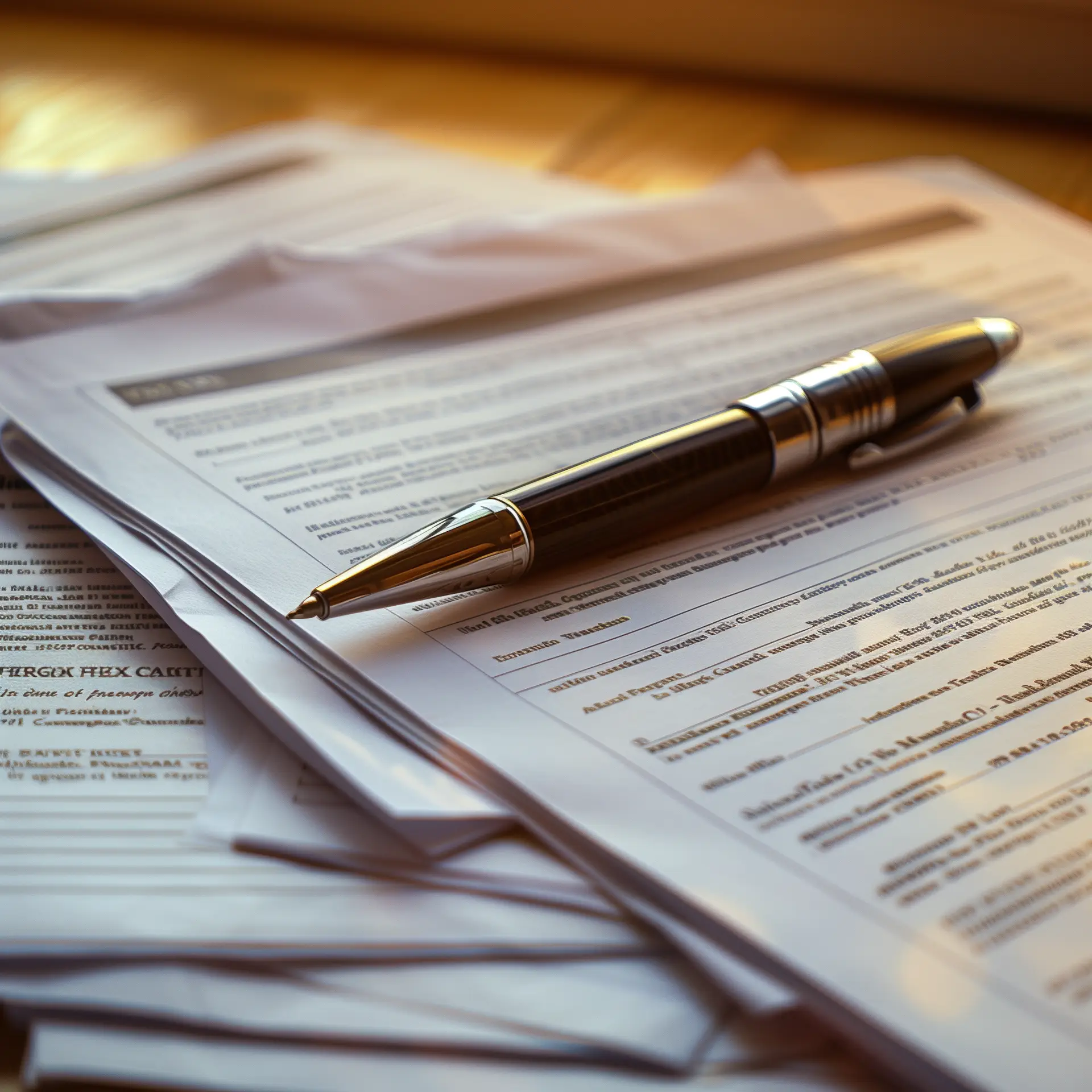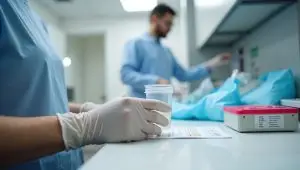In today's job market, employment drug tests have become an integral part of the hiring process across various industries. Whether you're a business owner, HR professional, or a job seeker, understanding the nuances of these tests is crucial. One of the common questions surrounding drug tests is whether they include alcohol screening. By exploring this topic, we aim to equip you with the necessary knowledge to navigate the complexities of employment drug testing effectively.
Key Takeaways
- Employment drug tests are common across various sectors to ensure safety, compliance, and productivity, although alcohol isn't always part of standard screening.
- While most standard drug tests focus on illegal drugs, alcohol testing may be included depending on company policies or industry-specific regulations.
- The cost of incorporating alcohol testing into drug screens varies and may be influenced by factors like location, type of test, and industry requirements.
- Different testing methods, such as mouth swabs and urine tests, have varying detection windows for substances including alcohol.
- Employers and job seekers should be informed about testing procedures and legal considerations to navigate employment processes effectively and uphold workplace safety standards.
Introduction
Employment drug tests are now a staple across various sectors, playing a critical role in ensuring safety, compliance, and productivity. Industries like healthcare and transportation heavily rely on these screenings to maintain high safety standards, while the tech sector uses them to preserve workplace efficiency and culture. As drug testing becomes more prevalent, a common concern arises: do these tests include alcohol screening?
In this article, we'll cut through the confusion and clarify if alcohol is part of standard employment drug tests. This insight is vital not just for HR professionals drafting policies but also for job seekers navigating the hiring maze. We're here to demystify the process, giving both employers and prospective employees a clearer picture of what to expect and how to prepare.

Understanding Employment Drug Tests
Employment drug tests are a routine part of many hiring processes. They serve as a tool for employers to screen potential employees for the use of illegal substances or misuse of prescribed medications. At their core, these tests are designed to ensure a safe and productive work environment.
The rationale behind conducting these tests is firmly rooted in safety and compliance. In industries like Healthcare, where the well-being of patients could be at risk, or in Transportation, where public safety is a primary concern, drug tests help maintain high standards of care and safety. By screening for drug use, companies reduce the risk of accidents and maintain their reputation.
There are several types of drug tests, each with its strengths. Urine drug testing is the most common and is often used due to its simplicity and accuracy. Drug mouth swabs offer a less invasive option and are ideal for on-the-spot testing, although they have a shorter detection window. Non-CDL DOT physical drug tests are specific to certain roles, ensuring compliance with Department of Transportation regulations without requiring a commercial driver's license.
Understanding these various methods and their purposes is crucial for both employers crafting a robust testing policy and job seekers preparing to navigate the hiring process.
Do Employment Drug Tests Test for Alcohol?
When it comes to employment drug tests, the question of whether they include alcohol often pops up. So, let's cut to the chase: alcohol isn't routinely tested in the standard drug screens you might be thinking of. Most standard panels focus on substances like marijuana, cocaine, opiates, amphetamines, and PCP.
However, the inclusion of alcohol can depend on various factors. Many companies adhere to specific policies and industry regulations that might call for alcohol testing. For instance, roles in the transportation sector under DOT regulations often require alcohol testing due to safety concerns. Even outside of regulated industries, some employers might decide to include alcohol testing based on their company-specific needs or historical issues with alcohol misuse.
If alcohol is on the testing agenda, there's an array of methods to detect it. Breath tests, often employing breathalyzers, are common for immediate measurement. Blood tests provide another route, though they're not as common due to higher costs and the invasive nature. Urine tests can also detect alcohol, but they’re typically used when employers want a broad spectrum of substance checks.
In conclusion, while not a given, alcohol can be part of employment drug testing regimes, dictated largely by company or industry-specific policies.
Do Pre-Employment Drug Screens Test for Alcohol?
When it comes to pre-employment drug screenings, alcohol testing isn't always part of the standard package. Typically, these screenings focus on illegal substances like marijuana, cocaine, opiates, and amphetamines. However, the inclusion of alcohol can vary depending on the company’s policy and the industry.
In industries where safety is paramount, such as Transportation or Construction, employers might opt to include alcohol testing as part of the pre-employment screening. This is because impairment from alcohol can directly impact safety and performance. But in other sectors, like Technology or Administrative roles, alcohol tests might be less common since the immediate safety risk is lower.
Some firms in the Hospitality industry are more inclined to screen for alcohol because of its prevalent access and potential for on-the-job consumption. For jobs involving driving or heavy machinery operation, even outside of Transportation, the importance of ensuring sobriety could lead employers to screen for alcohol.
Ultimately, the decision to include alcohol testing in pre-employment drug screens boils down to the specific needs and policies of the employer, along with any relevant regulatory requirements. Candidates should always be prepared for the possibility, even if it’s not a given. Understanding the norms within the target industry can offer some insight into whether to expect alcohol testing as part of the pre-employment process.
Cost Aspects of Employment Drug Tests
Understanding the cost of employment drug tests is a crucial factor for companies when considering their drug testing policies. A standard urine drug screen, commonly used for detecting narcotics, typically ranges from $30 to $60 per test. However, costs can vary significantly based on several factors.
One primary factor influencing the cost is the location. In urban areas where laboratory facilities are abundant, costs might be lower due to competition. In contrast, rural areas might see higher prices due to the limited availability of testing facilities. Additionally, the type of test itself can impact the price. For instance, more comprehensive panels that include alcohol testing or other specific substances generally cost more.
Furthermore, the decision to include alcohol testing in standard drug screens involves weighing the benefits against these additional costs. Companies must assess whether the added expense of alcohol-specific tests aligns with their safety policies and industry requirements. It's an important consideration for employers looking to balance effective screening with budget constraints.
Overall, understanding these cost components can help businesses make informed decisions on implementing drug testing policies that suit their operational needs and regulatory obligations.
Methodologies: From Drug Mouth Swab to Urine Tests
Let's keep it straightforward. Drug mouth swab tests are one of the fastest methods to detect substance use. They're quick, easy, and done by collecting saliva from inside your mouth with a small swab. These tests can spot various substances, including marijuana, cocaine, and, yes, alcohol, but typically within the last 24-48 hours of use. They are often used because of their non-intrusive nature and immediate results, making them useful for on-the-spot testing.
Urine drug tests are the more traditional route and cover a broad spectrum of substances. As the most common type of drug test, they are known for their reliability and can detect drug use over a longer period compared to the mouth swab. When it comes to alcohol, urine tests can detect it a bit longer, usually within 1 to 3 days after consumption, depending on various factors like how much was consumed and individual metabolism rates.
And if you're wondering about the timing, mouth swabs are quick, with results available in a few hours. But that swiftness varies based on the lab's workload. Urine tests take a bit longer, often around 24 to 48 hours for results, but their extended detection window makes them a popular choice for employers who wish to ensure safety without immediate on-the-spot requirements.
Non-CDL DOT Physical Drug Test and Alcohol
In the realm of transportation, the focus on safety extends beyond commercial drivers to include non-CDL (Commercial Driver's License) operators. While non-CDL drivers aren't subject to the same stringent testing as their CDL counterparts, they may still undergo drug testing as part of the Department of Transportation (DOT) physical exam. But what about alcohol? The approach towards alcohol testing in non-CDL DOT physical exams isn't as clear-cut.
Non-CDL DOT physical tests primarily assess a candidate's physical and mental capability to safely perform driving duties. The standard test protocols do not routinely include alcohol screening. However, some companies opt to incorporate alcohol testing, especially if their operations involve high-risk environments or sensitive cargo. The decision to test for alcohol typically hinges on company-specific policies rather than DOT mandates.
Being a non-CDL driver doesn't exempt one from all regulations. Companies might set requirements that exceed DOT minimums to ensure a safe workplace. As a result, non-CDL drivers should stay informed about their employer's guidelines and be prepared for the possibility of alcohol testing.
Overall, while non-CDL DOT physical tests do not automatically include alcohol testing, organizational policies and industry-specific safety considerations can introduce this element, emphasizing the importance of understanding individual company practices and requirements.
What Happens If You Fail a Drug Test?
Failing a drug test doesn't have to be the end of the world, but it does come with consequences. Companies usually have protocols outlining what happens next, and these can vary depending on the company policy and industry standards. For many, an immediate repercussion is the withdrawal of a job offer or termination, especially in safety-sensitive positions.
However, there's often room for discussion. Some companies might offer a chance for retesting, while others may provide resources for rehabilitation, especially if this aligns with company policy or if the worker has a good record. Employees with established workplace contributions might find employers more willing to explore these alternatives.
As for the employee, understanding your rights and options is pivotal. Checking in with human resources can provide clarity on company-specific policies. Maintaining open dialogue, if appropriate, may also help in negotiating next steps—whether that entails a retest or agreeing on a path toward rehabilitation.
Lastly, for jobs that don’t involve safety risks, it might be possible to ask for a secondary review or challenge the test results, particularly if there's reason to doubt the validity of the outcome. Knowing your industry standards and the legal framework can empower you to make informed decisions.
Legal and Regulatory Considerations
Navigating the legal landscape of employment drug testing demands an understanding of various regulations and guidelines. Firstly, the role of the Department of Labor (DOL) is paramount, as it provides general oversight and guidance on hiring practices, including drug testing policies. Employers should be familiar with any relevant updates or compliance requirements set forth by the DOL to ensure their testing protocols adhere to federal standards.
In addition to federal guidelines, industry standards play a crucial role. The Professional Background Screening Association (PBSA) offers a comprehensive framework that helps standardize practices related to background and drug screening. By following PBSA guidelines, employers can implement structured and fair testing procedures while minimizing legal risks.
While federal laws provide a broad strokes approach, state and local laws often introduce additional layers of complexity. These can vary significantly, influencing whether alcohol might be included in a standard drug test panel. Employers must stay informed about the specific regulations in their operating regions to tailor their testing policies appropriately.
Understanding these legal and regulatory considerations is crucial for anyone involved in the hiring process. By aligning drug testing practices with both federal guidance and industry-specific standards, employers can better manage compliance and protect themselves from potential legal challenges.
Conclusion
As we've explored, whether employment drug tests include alcohol is not a one-size-fits-all answer. While many standard drug screens focus on substances like marijuana, cocaine, and opioids, alcohol testing can be more sporadic. Some employers do integrate it based on industry needs and company policies, particularly in fields where safety is paramount. Understanding the variability and specifics of alcohol testing can help manage expectations for both employers and employees.
For employers, being transparent about your testing policies can demystify the process and foster trust. For employees, knowing these potential tests can prepare you for what to expect and help you make informed career decisions.
In a landscape where workplace safety and responsibility are crucial, maintaining open communication about drug testing policies is key. This fosters a culture of awareness and mutual respect, ultimately benefiting both the workforce and organizational integrity.
Additional Resources
- Background Checks & Drug Tests: Everything You Need to Know Before Hiring
- Do Pre-employment Drug Screens Test for Alcohol? What to Expect
- Alcohol Testing in Workplace Drug Screening: A Comprehensive Guide for HR Professionals
- What Happens If You Fail a Drug Test? Legal and Employment Consequences
- Do Employment Drug Tests Test for Alcohol? What to Expect

GCheck Editorial Team
Meet the GCheck Editorial Team, your trusted source for insightful and up-to-date information in the world of employment background checks. Committed to delivering the latest trends, best practices, and industry insights, our team is dedicated to keeping you informed.
With a passion for ensuring accuracy, compliance, and efficiency in background screening, we are your go-to experts in the field. Stay tuned for our comprehensive articles, guides, and analysis, designed to empower businesses and individuals with the knowledge they need to make informed decisions.
At GCheck, we're here to guide you through the complexities of background checks, every step of the way.





